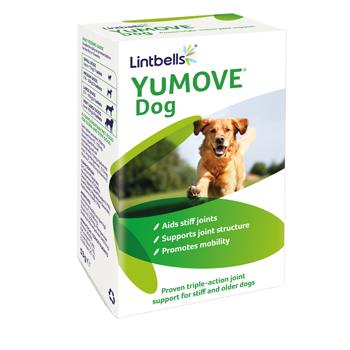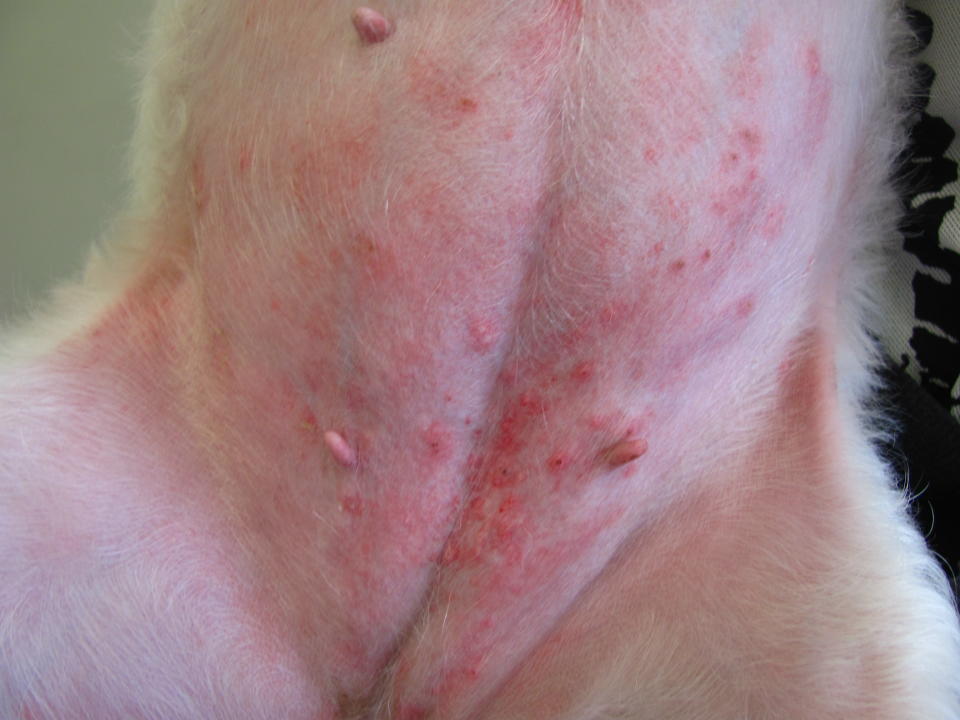Recommended Suggestions For Selecting Dogs Supplements For Joints
Wiki Article
Probiotics Can Aid Pets And Cats Suffering From Allergies.
Probiotics play an important role in reducing and preventing skin allergies in dogs and cats. The beneficial bacteria can help to keep a healthy gut microbiome, which in turn supports the overall immune system as well as skin health. Probiotics can help treat allergic skin conditions in pets:
Immune System Regulation
Immune Balance:
Function: Probiotics aid in regulating the immune system by promoting the growth of beneficial bacteria as well as blocking harmful bacteria from the intestine.
Benefits: A healthy immune system helps reduce hypersensitivity reactions, which can lead to skin allergies. This reduces the frequency, and severity of allergic reactions.
Inflammation Reduction
Anti-inflammatory Effects:
Function Specific strains of probiotics are able to create anti-inflammatory compounds, and regulate inflammation responses within the body.
Benefits - Through reducing systemic swelling, probiotics can help to ease itching, inflammation, and other symptoms that are associated with allergic reactions.
Gut-Skin Axis
Improved Gut Health:
The gut-skin link is a term that describes the relationship between the health of the skin and the gut. Probiotics have been shown to improve digestion health and gut barrier function.
Healthier guts prevent the leeching of toxins into the bloodstream that can trigger allergic reactions to the skin. It can also reduce symptoms of skin allergies.
Strengthening Skin Barrier
The Skin Barrier Function is Enhanced:
Function: Probiotics possess the ability to influence the production and distribution of ceramides as with other lipids necessary for maintaining an effective skin barrier.
Benefits A more robust barrier on the skin helps to protect against allergens from the environment. This helps reduce skin irritation and allergic reaction.
Allergy Symptom Management
The relief of symptoms
Function: By modulating the release of histamines and other chemicals involved in allergic reactions, probiotics can help manage symptoms.
Benefits: This can lead to reduced itching, redness and discomfort associated with skin allergies, providing relief for pets.
The diversity of microbes is an important aspect in improving the health of our environment.
More diverse microbial communities:
Function: Boosts diversity of the microbiome of the gut.
Benefits: A varied microbiome is better for overall health as well as skin health by preventing overgrowth of harmful bacteria which could contribute to allergies.
Specific Probiotic Strains
Lactobacillus, Bifidobacterium and other probiotics have been shown to aid in the treatment of skin allergies.
Lactobacillus rhamnosus GG: is known for its ability to improve the health of your gut and decreasing the symptoms of allergies.
Bifidobacterium aids in the reduction of inflammation and improvement of immune system.
Use and Considerations
Dosage and administration: The amount of probiotics to administer will depend on the size, weight and the specific health needs of your pet. Follow the directions on the package or given by your veterinarian.
Formulations Probiotics can be found in a variety of forms for pets, including capsules, powders, and chews. Choose a product that is suitable and safe for your pet.
Monitoring and Side effects While probiotics are safe in general, it's essential to watch your pet for any adverse reactions, such as digestive upset. To avoid any adverse reactions, begin with the lowest dosage, and then gradually increase it.
The final sentence of the article is:
Probiotics help dogs and cat owners deal with their skin allergies by controlling immune function and reducing irritation. They also help improve the barrier of the skin and improving the health of the gut. Regular use of probiotics can lead to a reduction in allergy symptoms, promoting healthy skin and a higher quality of life for pets. Read the top rated kidney failure in dogs info for site examples including pet rhodiola supplements, pet glucosamine-chondroitin supplements, herbal pet treatments, pet dental health, pet supplements for show dogs and cats, pet msm supplements, pet urinary tract supplements, pet supplements for pets with motion sickness and more.

How Can Cat And Dog Skin Allergies Treated With Quercetin?
Quercetin can be found naturally in many vegetables and fruits. Quercetin has a variety of positive effects on skin allergies. This is how quercetin works to treat skin allergies.
Anti-inflammatory Properties
Reduced Inflammation
Effect: Quercetin is a strong anti-inflammatory compound that blocks the release of proinflammatory cytokines, histamines and chemokines.
Benefits: Quercetin is a natural remedy to help reduce inflammation caused by allergies to the skin, reducing redness and swelling.
Antihistamine Effects
Natural Antihistamine:
Quercetin has the following function It reduces the mast cell's production of histamine. Histamines, that cause itching and other allergic symptoms are chemical substances.
Benefits as a natural antihistamine quercetin may help to reduce itching and other allergic reactions. It can provide relief to pets suffering from skin allergies.
Antioxidant Activity
Oxidative stress reduction
Effect: Quercetin has a strong antioxidant effect which neutralizes free radicals and assists in reducing oxidative stress.
Benefits: Reducing the oxidative stress of skin cells, encourage the healing process and ensure skin health.
Immune System Modulation
Balanced Immune response:
Function: Quercetin helps modulate the immune system, creating that allergens are not triggered in a way that causes imbalance.
Benefits: A healthy immune response can avoid hyper-reactions to allergens and reduce the frequency and severity of allergic outbreaks.
Enhancement Skin Barrier Function
Strengthening Skin Barrier:
Function: Quercetin promotes the production and maintaining of healthy skin by increasing the amount of ceramides.
Benefits A more robust barrier on the skin helps to shield against allergens found in the environment and pathogens. This can reduce allergic reactions and infections.
Allergy Symptom Management
Symptom Relief:
Function: Quercetin helps manage symptoms by inhibiting the activity of enzymes like lipoxygenase involved in the process of inflammation.
Benefits: The symptoms of itching and swelling are reduced, allowing animals to be more at ease and relaxed.
Use and considerations
Dosage and Administration: The correct dosage of quercetin depends on the pet's size, weight, and specific health issues. Always adhere to the instructions on the package, or the advice given by the veterinarian. Quercetin when paired with Bromelain, enhances its absorption.
Quercetin for pets can be found in a variety of forms, including tablets, capsules and powders. It is essential to select a high-quality, pet-specific product to ensure the safety and effectiveness.
Quercetin adverse effects: Quercetin in high doses is generally not harmful but it can cause upset to the stomach of certain pets. It is recommended to begin with a lower dose, and then increase it slowly. This can help to minimize the adverse effects. Monitoring for any adverse reactions including vomiting or diarrhea is important.
Conclusion
Quercetin aids in reducing skin allergies in dogs and cats. Its antihistamine, antiinflammatory and antioxidant properties can help to reduce inflammation, itching, and oxidative stress, while helping to strengthen the barrier between the skin and the body and regulating the immune response. Regular use can decrease allergic reactions and improve skin health. This improves the quality life for animals suffering from skin allergies. Take a look at the best a knockout post on probiotics for dogs for blog info including pet eleuthero supplements, pet devil's claw supplements, pet alfalfa supplements, pet eleuthero supplements, pet supplements for pets with fear of other animals, pet supplements for pets with fear of music, pet supplements for pets with fear of death, pet slippery elm supplements and more.

Apple Cider Vinegar Can Be Used For Yeast Infections In Dogs And Cats.
Apple cider vinegar (ACV) is often recommended as a natural treatment for yeast infections in dogs and cats. ACV has some potential benefits but, despite anecdotal reports and studies that show the use of ACV is beneficial, it should be taken under veterinary supervision because of its acidic qualities and side consequences. ACV aids in the treatment of yeast infections.
Antifungal Properties
Acidic Environment
ACV functions as an acidic substance, having the pH ranging between 2.5 and 3. The acidic atmosphere makes yeast difficult to grow.
Benefits ACV's benefits include applying ACV topically on your pet or adding it in their bath water can in reducing the growth of yeast on their skin.
Control of pH levels in the skin
Balancing Skin pH:
ACV could help regulate the pH levels of your skin. This could help promote a healthy skin barrier, and stop the growth of yeast.
Benefits: Keeping a healthy pH balance on the skin can prevent yeast infections and promote overall health of the skin.
Anti-inflammatory Action
The reduction of inflammation
ACV is moderately anti-inflammatory.
Benefits: Lowering inflammation can alleviate symptoms such as redness, itching, and discomfort that are associated with yeast infections.
Support for Digestive Health
Internal Use
ACV can improve digestion, and help balance the gut bacteria after ingesting.
Benefits: A healthy gut environment may indirectly reduce yeast overgrowth by supporting overall immunity and balance of microbial activity.
Use and considerations
Topical Application - dilute ACV (typically 1 part ACV for every 2 parts water) with water and use as a rinse, spray, or ointment on affected areas. It is recommended to avoid using it directly to open wounds or skin that is sensitive.
Consult your veterinarian before using ACV internally. ACV should be extremely dilute (1 teaspoon to 1 tablespoon per cup of water) and given in small amounts to avoid stomach discomfort or upset.
Monitoring: Check for indications of allergies or irritations when using ACV topically. Discontinue ACV use if adverse reactions develop.
Consultation of Veterinarians Before using ACV in treating yeast infections on pets, consult with a vet. They can give you advice on the proper dosage and application method for your pet, and also the potential dangers.
Conclusion
Although apple cider vinegar could be beneficial in managing yeast infections in dogs and cats however, it should be done with care and under the supervision of a vet. ACV is acidic and could create an environment that does not encourage yeast growth. It also has mild antiinflammatory effects. To avoid irritation and adverse reactions, it is important to take care when using ACV. ACV is best used in conjunction with a complete program of treatment to treat yeast-related infections. See the best visit website for more info including pet lavender supplements, pet collagen supplements, pet memory supplements, pet dental supplements, natural dog supplements, pet supplements for pets with skin allergies, pet supplements for pets with fear of tv and radio, pet echinacea supplements and more.
